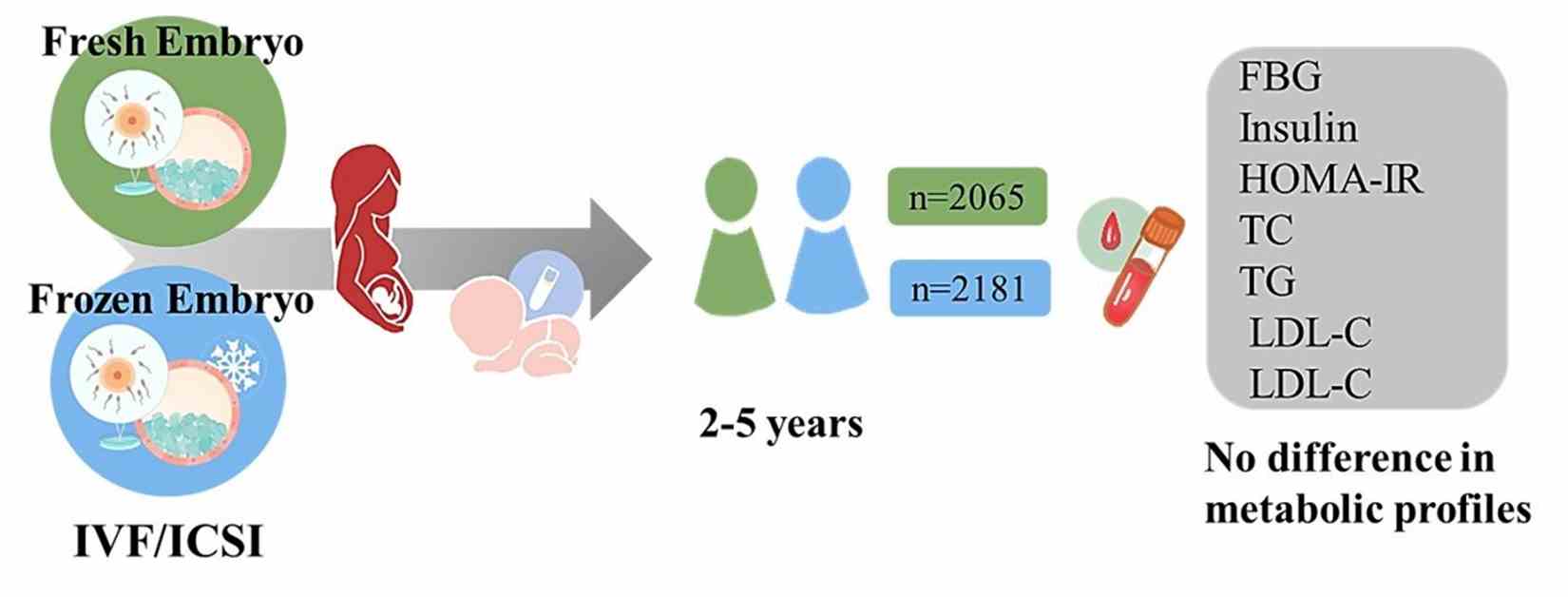Metabolic Parameters Found to be Similar in Children Born via Frozen Versus Fresh Embryo Transfer, Research Shows
In a recent study published in the open-access journal PLOS Medicine, researchers from Shandong University, China, and colleagues found that children born via frozen embryo transfer have similar metabolic profiles to those born via fresh embryo transfer. This study, which included over 4,000 cases of in vitro fertilization (IVF) or Intracytoplasmic Sperm Injection (ICSI), sheds light on the safety of frozen embryo transfer in early childhood.
Previous research has yielded conflicting results regarding the long-term metabolic health impacts of assisted reproductive technology. While some studies suggested a higher risk of metabolic disorders in children born via frozen embryo transfer, others found no significant differences in metabolic factors between children born via fresh or frozen embryo transfer.
The researchers compared the glucose and lipid profiles of children aged 2 to 5 years, half of whom were born via fresh embryo transfer and the other half via frozen embryo transfer. They followed these children for an average of 3.6 years, monitoring metabolic factors associated with heart disease and diabetes such as fasting blood glucose, insulin, cholesterol, and triglycerides.
Surprisingly, the study found no significant differences in any of the metabolic factors between children born via fresh embryo transfer and those born via frozen embryo transfer. Even after conducting subgroup analyses based on various factors such as gender, age, and method of conception, the results remained consistent.
This research provides valuable information for couples considering assisted reproductive technology treatments. The authors emphasize that frozen embryo transfer does not have adverse effects on metabolic profiles in early childhood, offering essential evidence for counseling couples undergoing such treatments on its safety.
Overall, this study contributes to the ongoing discussion on the impact of different assisted reproduction techniques on children’s long-term metabolic health. While more research is needed in this area, the findings of this study provide reassurance to those considering frozen embryo transfer as a viable option for assisted reproduction.
For more details, the study titled “Metabolic profiles of children aged 2–5 years born after frozen and fresh embryo transfer: A Chinese cohort study” can be accessed in PLOS Medicine (2024) with the DOI: 10.1371/journal.pmed.1004388.
Source:
“Metabolic parameters found to be similar in children born via frozen versus fresh embryo transfer, research shows” (2024, June 6)
Retrieved on June 10, 2024, from https://medicalxpress.com/news/2024-06-metabolic-parameters-similar-children-born.html
Please note that this document is protected by copyright, and any reproduction without written permission is prohibited. The content provided is for informational purposes only.


